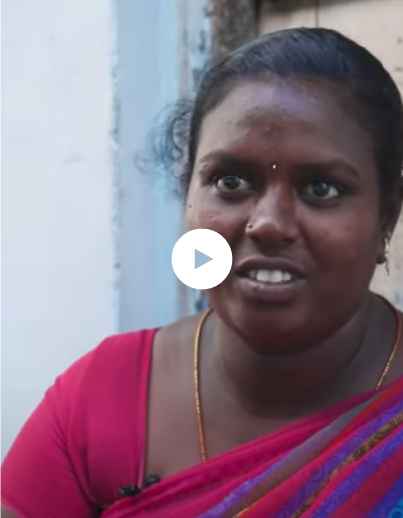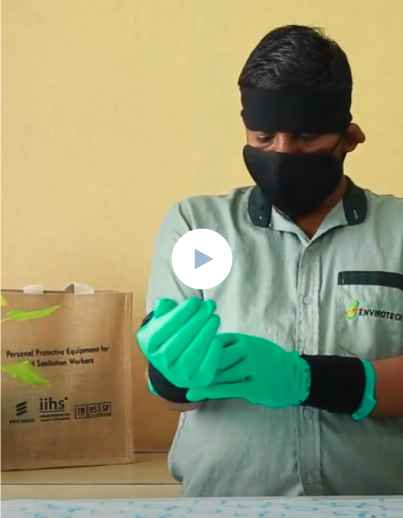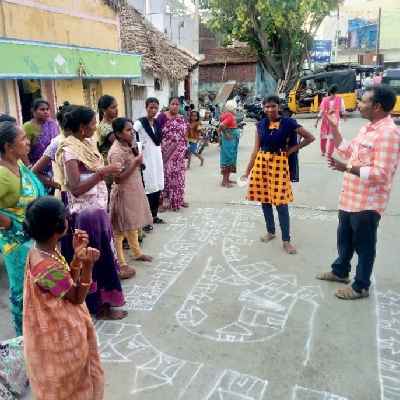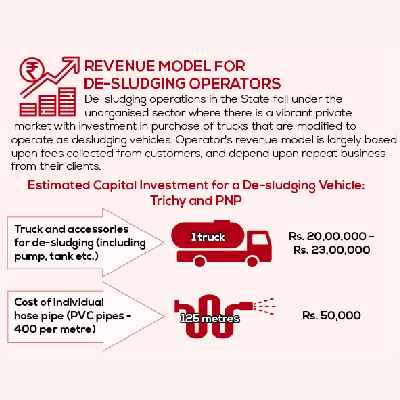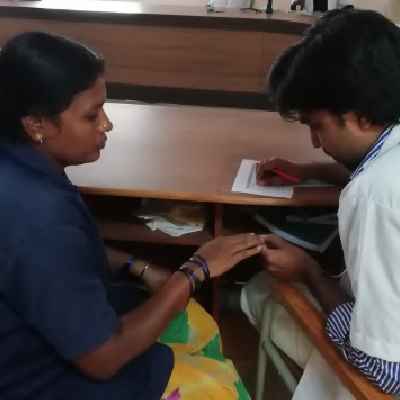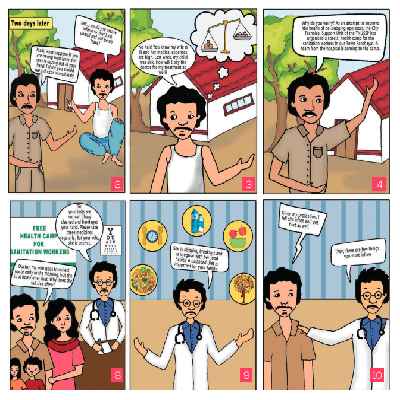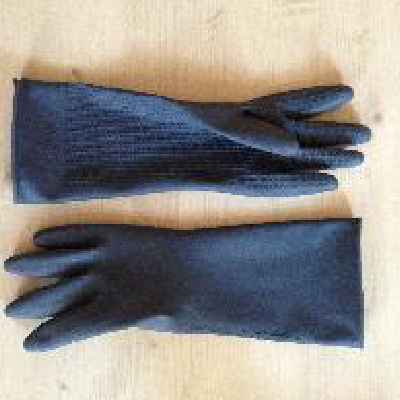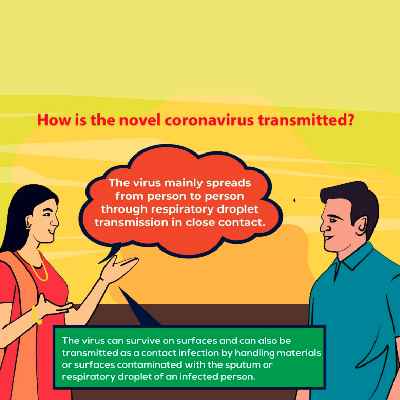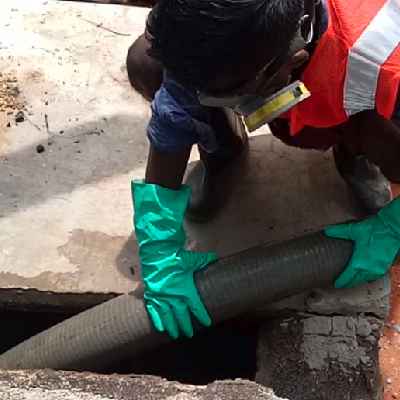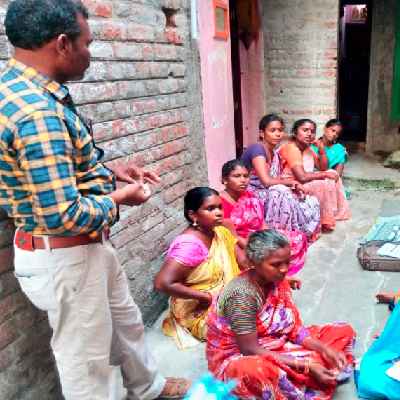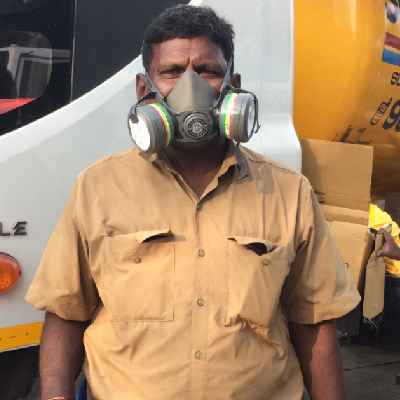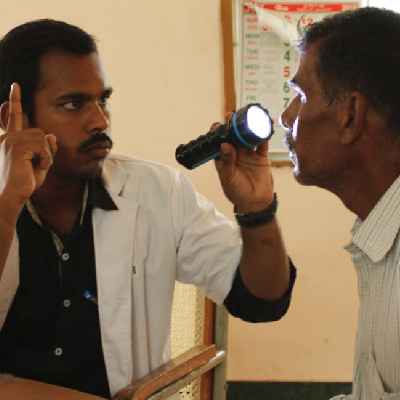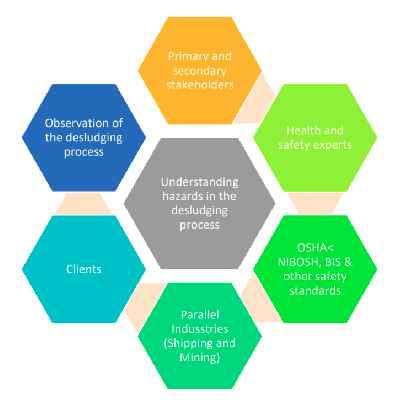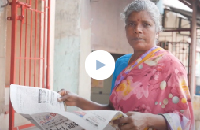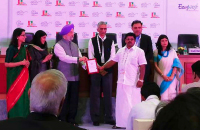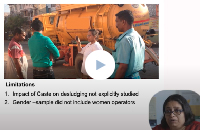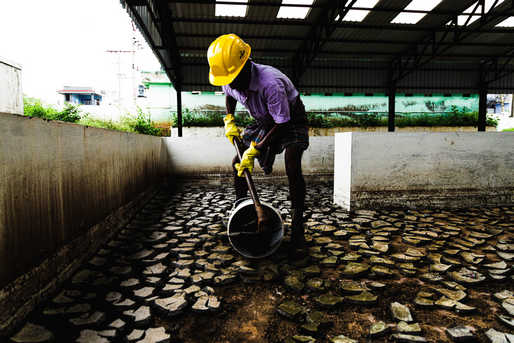
Sanitation workers play a key role in every step of the urban sanitation chain, be it containment, emptying, transport or treatment. TNUSSP, since its launch in 2015, has identified and engaged with different types of sanitation workers (e.g. toilet cleaners, de-sludging operators, workers at treatment facilities) in different contractual arrangements (ranging from being on ULB pay-roll to self-employment). Despite their importance they are often under-appreciated and over looked. TNUSSP has been working with these sanitation workers to help improve their livelihood, health, welfare and most importantly their occupational health and safety.
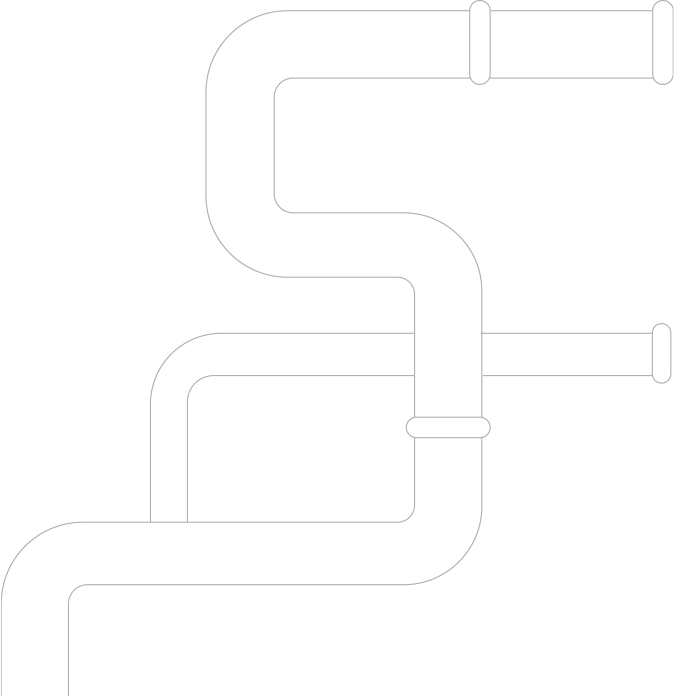

Working with Sanitation Workers
Livelihoods
TNUSSP has been working on enterprise and livelihood strengthening for sanitation workers, their families and youth by providing skill development, vocational training (soap-making, beautician training, mobile phone repairs, tailoring etc.), assistance to job placements and support to securing loans for businesses.
Challenges seen are in terms of linkage to market opportunities and stigma associated with the existing profession. TNUSSP is working with specialised organisations who can train, absorb and ensure placement of the sanitation workers and their families.
Health and Welfare
To improve the sanitation worker benefits and their wellbeing, in terms of health and welfare TNUSSP has been creating awareness about government welfare and security schemes among the sanitation workers’ community in addition to linking them with government welfare schemes and the welfare board to avail social security benefits, insurance, loans etc.
Health camps (inclusive of medical check-up, diagnostics, counselling and awareness) have been periodically conducted across slums exclusively for sanitation workers and their families.
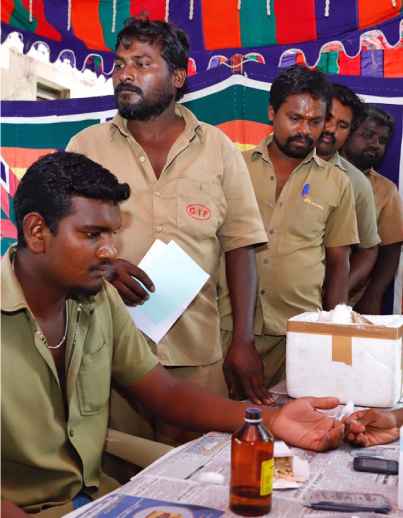
Occupational Safety
Sanitation workers are constantly exposed to different forms of waste and prone to many physical injuries. Hence, the programme identified safety concerns faced by de-sludging operators and field tested a set of interventions for improving worker safety. The proposed interventions go beyond the provision of Personal Protective Equipment (PPE), and range from behaviour change campaigns, improvements in decanting stations to better access to appropriately designed safety tools etc. Additionally, trainings on first aid and manuals for safe operating procedures are in the pipeline for worker safety.


